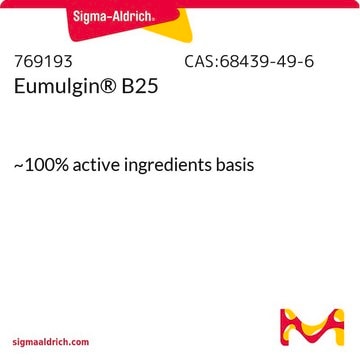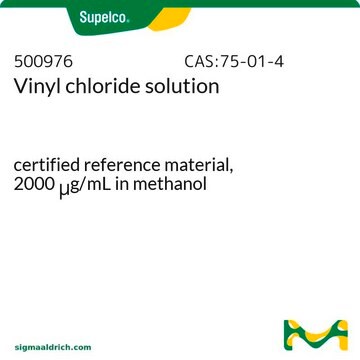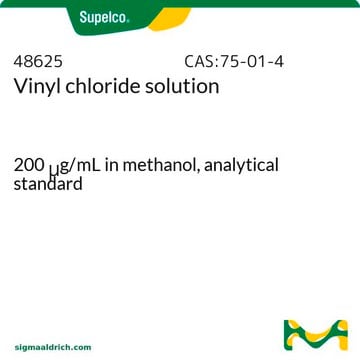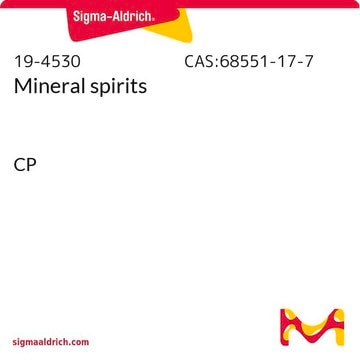13-0822
Hexano
≥96.0%, for residue analysis, JIS 1000
Sinónimos:
n-Hexano
About This Item
Productos recomendados
product name
Hexano, JIS 1000, ≥96.0%, for residue analysis
grade
for residue analysis
agency
JIS 1000
vapor density
~3 (vs air)
vapor pressure
256 mmHg ( 37.7 °C)
5.2 psi ( 37.7 °C)
~132 mmHg ( 20 °C)
assay
≥96.0%
form
liquid
autoignition temp.
453 °F
expl. lim.
7.7 %
availability
available only in Japan
refractive index
n20/D 1.375 (lit.)
pH
7
bp
69 °C (lit.)
mp
−95 °C (lit.)
density
0.659 g/mL at 25 °C (lit.)
SMILES string
CCCCCC
InChI
1S/C6H14/c1-3-5-6-4-2/h3-6H2,1-2H3
InChI key
VLKZOEOYAKHREP-UHFFFAOYSA-N
¿Está buscando productos similares? Visita Guía de comparación de productos
Categorías relacionadas
signalword
Danger
Hazard Classifications
Aquatic Chronic 2 - Asp. Tox. 1 - Flam. Liq. 2 - Repr. 2 - Skin Irrit. 2 - STOT RE 2 Inhalation - STOT SE 3
target_organs
Central nervous system, Nervous system
Storage Class
3 - Flammable liquids
wgk_germany
WGK 3
flash_point_f
-7.6 °F - closed cup
flash_point_c
-22 °C - closed cup
ppe
Eyeshields, Faceshields, Gloves, type ABEK (EN14387) respirator filter
Certificados de análisis (COA)
Busque Certificados de análisis (COA) introduciendo el número de lote del producto. Los números de lote se encuentran en la etiqueta del producto después de las palabras «Lot» o «Batch»
¿Ya tiene este producto?
Encuentre la documentación para los productos que ha comprado recientemente en la Biblioteca de documentos.
Nuestro equipo de científicos tiene experiencia en todas las áreas de investigación: Ciencias de la vida, Ciencia de los materiales, Síntesis química, Cromatografía, Analítica y muchas otras.
Póngase en contacto con el Servicio técnico












